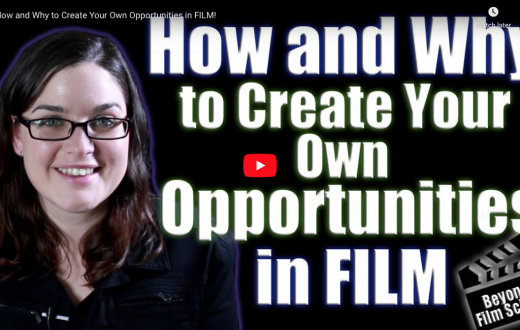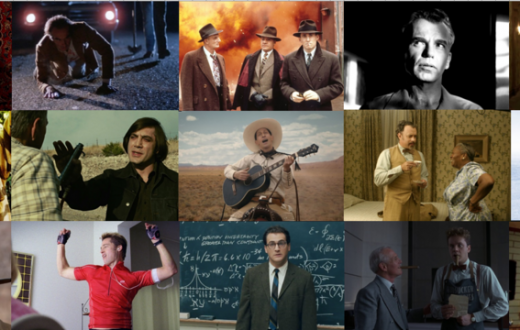We’re all aware of the great collaborations that seem to crop up again and again when it comes to acting, directing, and creating in general: Alfred Hitchcock and James Stewart, Martin Scorsese and Robert DeNiro, Tim Burton and Johnny Depp.
And there’s good reason for that, beside the fact that they’re all talented and gifted creators. When you work with someone you’ve worked with many times before, there’s an unspoken language between you. There’s a shorthand that, while it may not replace normal language, at least allows you to get to where you need to go more quickly and efficiently.
And while communication and collaboration between actor and director is of course vital to our success on any project, there’s another, often unsung creative you’re going to need to work with before you ever get signed on to meet a director, and that’s the casting director.
It’s unfortunate that so many actors think of the CD (CD = Casting Director) as more of a hindrance, a roadblock to them getting work rather than a vital part of the work in themselves. A more useful mindset is to look at the CD as a partner, another creative just like yourself with whom you want to develop a working relationship and collaborate in order to create something: that something is the “you” that will get you cast.
And just like developing a working relationship with a director can lead to “repeat business” for an actor, so to is developing a working rapport with CDs. If you get hired by a CD once, great! Congratulations! But if you can go back to castings run by the same CD and increase your chances of getting hired by them over and over again, even better. Here’s how to ensure that you put your best foot forward with the CD, and give yourself the best chance of getting that call asking for you in particular to come in and read because they like what you bring to the table!
1. Be Prepared
The thing actors often forget about CDs is that they WANT TO HIRE YOU. Good casting directors aren’t sitting behind that table like sadistic imitations of Simon Cowell, bent on abusing and humiliating you, searching for reasons to reject you. If you are right for the gig, and the CD can get what they need to see from you to show to the rest of the production team, that means they get to go home! (Well, not literally, but believe me, each piece of the casting puzzle they fill in makes each subsequent piece that much easier to choose.) So, there’s nothing more frustrating for a CD who calls in an actor they’ve never met, but who seems to have the right look and experience level based on a headshot, a CV and a reel, only to find that when he or she arrives they are completely unprepared. They’re late, they haven’t done any research into the role or the piece, they haven’t even looked at the sides, much less worked out an action and an objective for their character. You might be the most amazing actor in the world, but if you can’t make simple preparations for an audition, what does that tell the CD about how you might prepare prior to being on set?
2. Be Nice
Just be nice, for goodness’ sake. Not only on set when the director is looking, not only in the audition room, but also when you’re off camera in the make-up trailer, or when you’re waiting to read. CDs are in a weird position: their reputation is staked entirely on YOUR reputation. Every time you book a gig you’re putting not only your own reputation as an actor on the line, but also that of the person who cast you. It’s a small business in many ways. If a CD sends out an actor one time who behaves like a jerk on set, most production teams and directors will let it slide. But if it happens a few times, that CD is going to be getting a call to discuss said jerky actor. Be the guy or girl they want to hire because they know you will show them in a good light.
3. Be a Yes-Man or Woman
If we can agree that you’re going to be using your acting skills in an audition, then we should also agree that it’s important to utilize the same set of tools we use in any acting project. When a CD works with an actor who is receptive to trying new things in the audition — painting with new colors, attacking the piece from a whole new angle, taking a deep breath and starting again from scratch – they can rest assured that when you’re on set you’ll be open to giving the director a multitude of options. And while you should be prepared when you go to an audition, you shouldn’t be locked in to one set of choices. Just as we approach acting on set or stage, show your CD an open, receptive, flexible attitude, because that’s the kind of actor they want to send out.
4. Be Good And Get Better
Casting Directors know what you’ve got, but they also know when you’ve stepped up your game. Keep them guessing, keep them surprised to see some new aspect of your acting toolkit come out every time you read. This means keep taking classes, constantly expanding your comfort zone, and finding new and innovative ways to be creative. Every project you do informs every subsequent project; as performers we internalize every performance and incorporate them into ourselves to a lesser or greater degree. So in addition to taking formal classes – which we should all constantly be involved in – get up on stage at open mic nights, join an improv group, start an actors’ scene study group, or write and shoot a video short. CDs are excited to see actors who are excited about what they’re working on, and who are dedicated to improving their craft. (A bonus is that every one of these projects and classes involve other like-minded people, and you never know where your networking will lead!)
5. Be In Touch
As mentioned above, the acting business, even if you’re in a hub city like New York, LA or Atlanta, is really made up of a small, insular group of people. That’s why networking is so very important. If you’ve read for a CD a couple of times and you seem to be building a rapport with them, don’t be afraid to drop a note mentioning an upcoming gig or showcase you have going on. Don’t be afraid to check in with them if you change representation, or if you have other big news regarding your career. This is in no way a green light to harass or stalk CDs. But most of them will remind you that they’re human beings too. Reading an email takes a second; fielding a phone call takes two minutes. Advice varies on how far to carry this, whether friending someone on social media is fair game or not, but hey, everyone wants more Twitter followers, right?
The bottom line is you have to treat your relationship with a CD in much the same way you treat your relationships with every other creative in the business. Casting directors aren’t the bad guy of the story – or alternatively the hero. They are simply another person working a job that allows them to celebrate their passion for this amazing human creation we call acting. Treat them as such!







